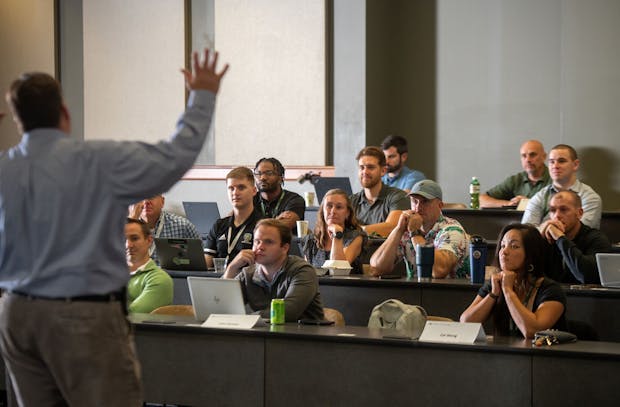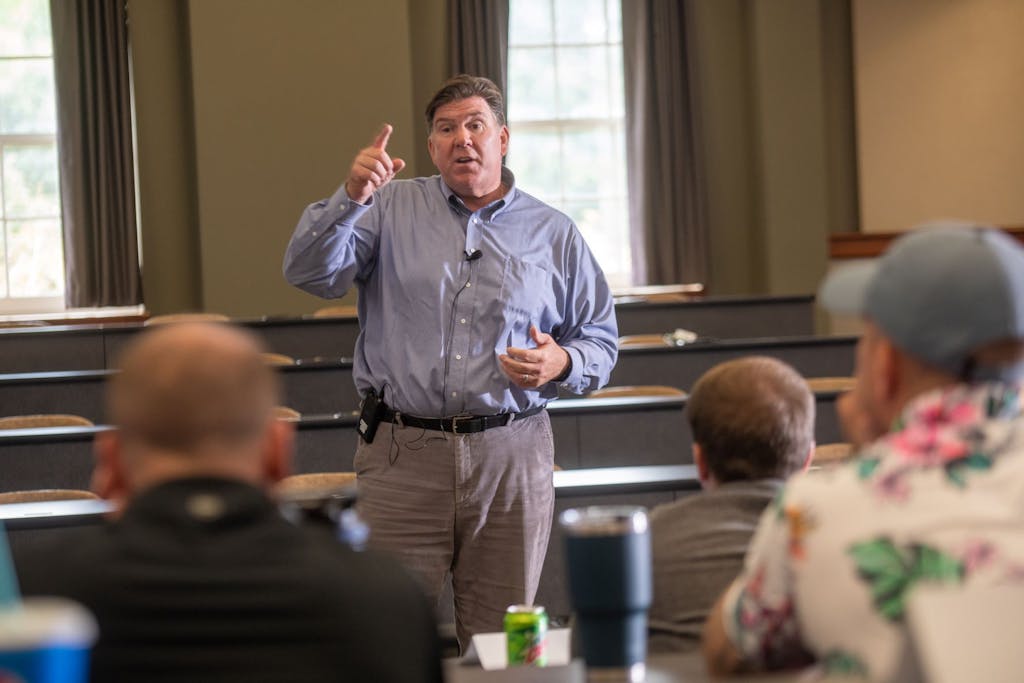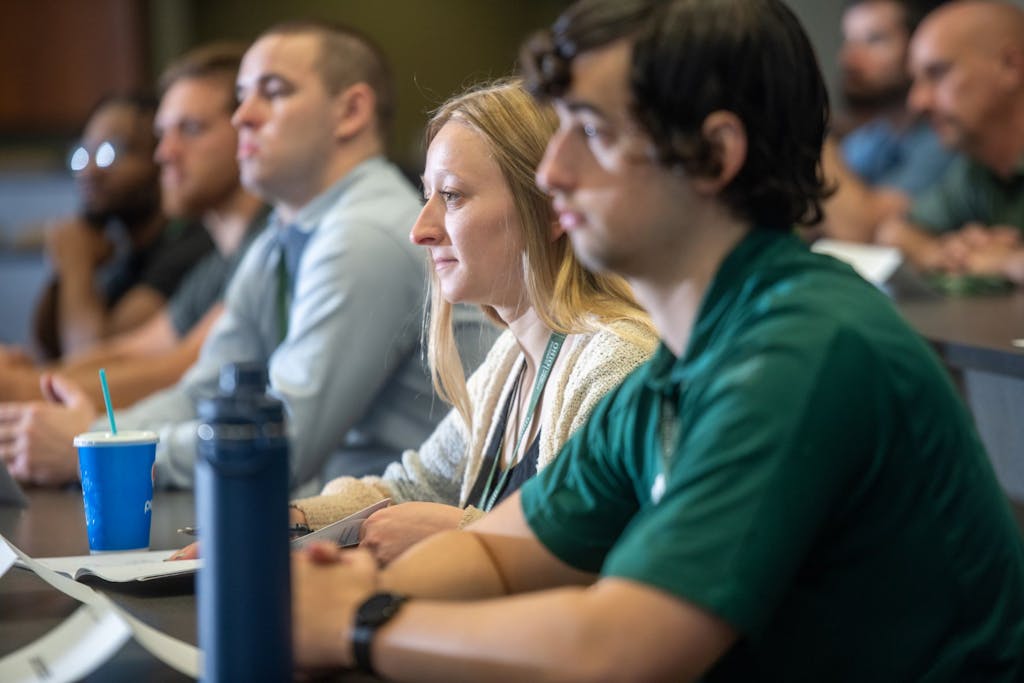
One only has to look at some of the roles occupied by those who have enrolled in Ohio University’s Professional Master of Sports Administration (PMSA) since its launch in 2010 to see how it has attracted such a sterling reputation.
Indeed, with alumni like Big West commissioner Dan Butterly, Utah Jazz chief experience officer Andrea Williams, Big Ten chief sports officer Diana Sabau and Legends Attractions chief revenue officer Corey Breton, it is little surprise that the program took top spot in the SportBusiness 2021 Postgraduate Rankings.
With a rigorous and extensive syllabus backed up by best-in-class teaching, the program is helping to shape the industry’s leaders and ensure that the future of sport is in good hands.
Indeed, Kelley Walton, Director of the PMSA Program, believes the advantages go way beyond what they consume in the classroom and online learning environment.
“Since 2010, the PMSA program has focused on giving industry professionals advanced sport business education, professional development and connections within the sport industry,” Walton said.
“I believe our program has a positive impact on the sport industry. We provide a high level of sport business education to industry professionals.
“Because the sport business is not 9-5, our curriculum, while rigorous, allows for current sport professionals to advance their knowledge of sport business principles without having to pause their careers to do so. It is designed knowing that our students rarely work less than 40 hours a week.
“We work hard to deliver a high-quality, interactive and engaging curriculum so our students come away with significantly more than a Master’s degree. They come away with a high-level sport business education and a strong alumni network to support them.”
Core business concepts
The program, mostly delivered online, is designed to prepare sport industry professionals for the next step in their career and beyond. Core courses include revenue generation, facility and event management, sport law, analytics, and finance.
Walton said: “We provide in-depth academic content to ensure that when students are faced with increasing a team’s revenue, reducing facility costs, managing a multi-million-dollar budget, handing NIL issues, or finding the most efficient way to analyse fan data, they are prepared at an executive level to do so.
“And with core courses that focus on leadership and human resources, we ensure they understand how to lead an organisation and put those core business concepts into action.
“We believe that leaders don’t need titles and that students who have the well-rounded sport business education will be ready for the next step in their career – that may be an associate athletic director, assistant director of marketing or an event manager.”
 Interactive sessions
Interactive sessions
Generally, students enrol in one class every seven weeks with a one-week break in between. Courses are delivered digitally, including live virtual classrooms and presenters, recorded lectures, discussion boards, and case studies. Between three and five synchronous sessions are available in the evenings, including a variety of interactive sessions, such as course introduction, guest speakers, lectures, and live discussionsThe program features a variety of interactive assignments, group and written projects and live discussions.
The expansion of online learning platforms has been a key development for the program, meaning excellent teaching and courses can be delivered in a manner that suits learners who are also focussing on their high-level roles at major teams, businesses, and organisations. While most teaching is accessed online, in-person elements remain important for those who wish to take full advantage of enrolment.
Walton said: “I foresee the academic portion of the curriculum continuing to be delivered nearly all in an online format and I see the in-person learning opportunities moving more to optional elements rather than requirements.
“A high-quality education can be delivered in an online format, however the networking, social and interactive sessions of the program is undoubtably enriched with in-person components. The goal is to have highly engaging, in-person activities and that may mean fewer but more engaging live sessions in the future.”
 Complex concepts
Complex concepts
The live residencies provide formal and informal opportunities for students to learn from each other, and this aspect of the course can be valuable for those who are new to the industry, as well as those who have decades of experience, but are eager to learn from their younger colleagues.
For Walton, a key aspect of the course is that it is relevant to students with three or four years of experience as well as those with over 20 years. That means both teaching and subject matter must be accessible for all.
“The curriculum is designed to be delivered at a high level,” she said. “While this may be more challenging for those who have less experience, we have faculty, guest speakers and other classmates who are able to help provide understanding of complex concepts.”
The subject matter is also responsive to changes within the industry. Course leaders have had to be particularly imaginative in reacting to the transformative impact of the COVID-19 pandemic on the sports industry. A greater reliance on digital technology and a switch from live event attendance means that different essential responsibilities now feature in job descriptions.
Walton said: “The sport industry job market has changed significantly over the last three years. COVID-19 restrictions to events and large gatherings changed many aspects of the sport business and had serious impacts on the job market.
“Our goal is to make sure that we are positioned for the foreseeable future to help our students adapt and lead through difficult challenges like COVID-19 and whatever other hurdles they may face as sport industry leaders.”